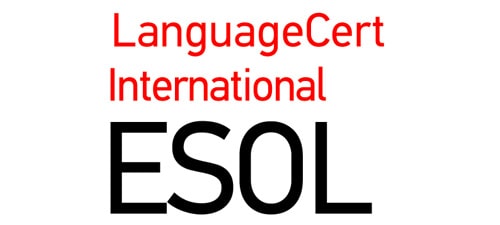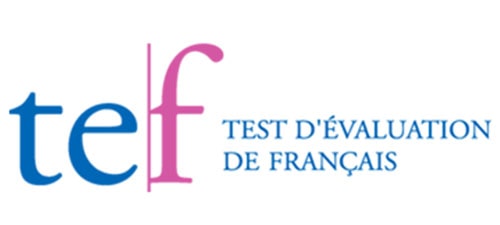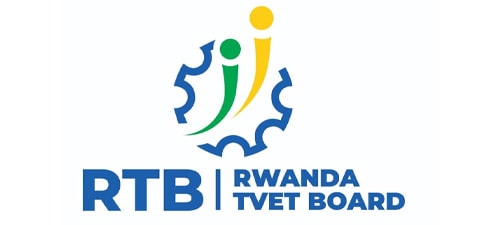Introduction to Spectrum Disorders
- Home
- Accreditation
- KISE
- Introduction to Spectrum Disorders
Autism Spectrum Disorder
Course Description
This autism course provides an in-depth understanding of Autism Spectrum Disorder (ASD), including its diagnosis, etiology, and characteristics. The course will cover the many evidence-based treatment options for children with autism, including behavioral interventions medications, and speech and language therapies. The course will also explore issues related to autism in the classroom, including strategies for academic success, social skill interventions, and Individualized Education Programs (IEPs). Additionally, the course will explore the challenges faced by families with a child on the autism spectrum, including support systems, resources, and strategies to promote family well-being.
Throughout the course, ethical considerations in working with children with autism will be explored, including the importance of cultural competence and advocacy for inclusion. Students will learn about current research trends in autism and best practices for continuing professional development in the field. The course will include various opportunities for reflection and understanding of the importance of providing quality care for individuals and families affected by autism.
The course is designed for students, practitioners, and caregivers who want to gain a basic understanding of autism and to support people on the spectrum.
Learning Objectives
- Understand the definition and prevalence of autism and related conditions.
- Describe the key features of autism, including social, communication, and sensory differences.
- Understand the range of intellectual abilities and co-occurring conditions associated with autism.
- Learn how to diagnose and assess autism using standard instruments and interviewing.
- Identify the potential causes and risk factors for autism, including genetic and environmental factors.
- Identify effective evidence-based treatments for children with autism, including behavioral interventions, medications, and speech and language therapies
- Recognize the challenges faced by families with a child on the autism spectrum and how to support them
- Explore strategies for academic success, social skill interventions, and Individualized Education Programs (IEPs) in the classroom
- Understand the ethical considerations and importance of cultural competence and advocacy for inclusion when working with children with autism
- Identify current research trends in autism and best practices for continuing professional development in the field
- Develop a personalized understanding of the importance of providing quality care for individuals and families affected by autism.
Teaching Methods
There are a variety of teaching methods that are effective for individuals with Autism Spectrum Disorder (ASD). These methods include:
- Applied Behavior Analysis (ABA): ABA is a behavior-based therapy that focuses on teaching skills by rewarding positive behaviors and ignoring negative behaviors. This method is often used for young children with ASD.
- Structured Teaching: This method emphasizes a predictable and structured environment that is consistent and familiar for the student with ASD. It often includes visual schedules, structured routines, and consistent expectations.
- Visual Supports: This method uses visual aids such as picture schedules, social stories, and visual cue cards to support communication and social skills in individuals with ASD.
- Social Skills Training: This method focuses on developing social skills such as communication, problem-solving, and emotional regulation in individuals with ASD.
- Technology-based Interventions: These include computer-assisted instruction, video modeling, and virtual reality, which are effective in promoting social and communication skills in individuals with ASD.
- Relationship-Based Interventions: This method involves building strong, positive relationships with the student with ASD and using these relationships as a foundation for learning and development.
- Peer-Mediated Intervention: This method involves using typically developing peers to model appropriate social skills and behaviors to the student with ASD.
Course Format
- Weekly lectures and discussions (online or in-person).
- Assigned readings and videos.
- Group activities and case studies.
- Guest speakers from different backgrounds, including parents, educators, and researchers.
- Assignments and quizzes.
Course Topics
1. Introduction to Autism Spectrum Disorders
- Definition and history of autism.
- DSM-5 diagnostic criteria and subtypes of autism.
- Autism prevalence and demographics
- Myths and misconceptions about autism
- Prevalence and incidence of autism worldwide.
2. Key Features of Autism
- Social differences in autism, including communication, interaction, and empathy.
- Sensory differences and motor challenges in autism.
- Intellectual abilities and co-occurring conditions, including intellectual disability, ADHD, and anxiety.
3. Diagnosis and Assessment of Autism
- Standard instruments and criteria for diagnosing autism, including the ADOS and ADI-R.
- Interviewing techniques and cultural considerations in diagnosis.
- Differential diagnosis and comorbidity with other disorders.
- Social communication deficits
- Restricted and repetitive behaviors (RRBs)
- Common assessment tools used for diagnosis
- Understanding assessment results
4. Causes and Risk Factors for Autism
- Genetic factors and heritability of autism.
- Environmental factors and prenatal risk factors.
- Neurobiological and brain imaging studies of autism.
5. Evidence-Based Treatments for Autism
- Applied Behavior Analysis (ABA) and Early Intensive Behavioral Intervention (EIBI).
- Speech and language therapy, occupational therapy, and physical therapy.
- Social skills training and cognitive-behavioral therapy.
- Medications and their effectiveness in treating autism
- Augmentative and alternative communication (AAC)
6. Research Topics and Controversies in Autism
- Current research topics in autism, including neurodiversity, comorbidity, and transition to adulthood.
- Controversial topics and alternative treatments in autism, including vaccination and medication.
- Advancements in technology and treatment
- The importance of cultural competence
- Continuing professional development in autism
7. Supporting People with Autism in Everyday Life
- Strategies for enhancing communication and social interaction with people with autism.
- Adapting environments and routines to accommodate sensory and motor needs.
- Providing support and advocacy for people with autism and their families.
8. Supporting Children with Autism in School
- Autism in the classroom
- Strategies for academic success
- Social skill interventions
- Understanding and implementing Individualized Education Programs (IEPs)
9. Autism and Comorbidities
- Common co-morbid conditions with autism
- Anxiety disorders
- Attention Deficit Hyperactivity Disorder (ADHD)
- Sensory processing disorders
10. Supporting Families Impacted by Autism
- Challenges faced by families
- Support systems and resources for families
- Strategies to promote family well-being
- Family-centered care
11. Ethical Considerations in Working with Children with Autism
- Ethical issues in the treatment of autism
- Lack of standardized care
- Understanding the role of caregivers
- Advocacy and Inclusion
12. Course Review and Reflection
- Review of key topics and takeaways
- Student presentations
- Final reflection paper.
Assessment Criteria
- Assignments and quizzes: 40%
- Final Exam: 40%
- Participation in discussions and group activities: 15%
- Attendance and punctuality: 5%
Reference materials
National Institute of Mental Health: Autism Spectrum Disorder: This webpage provides information on autism spectrum disorder, including signs and symptoms, causes, and treatment options.
- Centers for Disease Control and Prevention: Autism Spectrum Disorder: This webpage provides a comprehensive overview of autism spectrum disorder, including data on prevalence, characteristics, and causes.
- Autism Speaks: About Autism: This webpage provides information on autism spectrum disorder, including symptoms, diagnosis, and treatment options, as well as resources for individuals and families affected by autism.
- The Autism Society: About Autism: This webpage provides information on autism spectrum disorder, including symptoms, diagnosis, and treatment options, as well as resources for individuals and families affected by autism.
- The National Autism Association: About Autism: This webpage provides information on autism spectrum disorder, including symptoms, diagnosis, and treatment options, as well as resources for individuals and families affected by autism.
- The Autism Research Institute: About Autism: This webpage provides information on autism spectrum disorder, including symptoms, diagnosis, and treatment options, as well as research updates and resources for families and professionals.
- The Organization for Autism Research: Resources for Families: This webpage provides resources for families affected by autism, including information on diagnosis, treatment options, and educational resources.
- The Autism Science Foundation: Resources for Professionals: This webpage provides resources for professionals working with individuals with autism, including training materials, research updates, and best practices.
- The Autism Society: Stories from the Spectrum: This webpage features stories from individuals with autism and their families, providing an opportunity to gain a deeper understanding of the lived experience of autism.
- The National Institute of Child Health and Human Development: Autism: This webpage provides information on autism spectrum disorder, including research updates, treatment options, and resources for individuals and families affected by autism.









